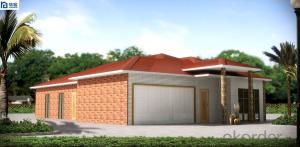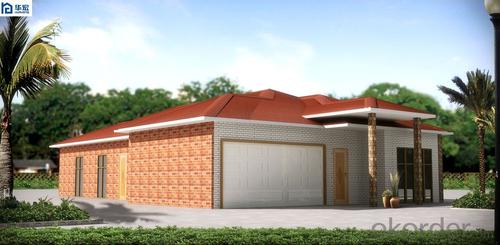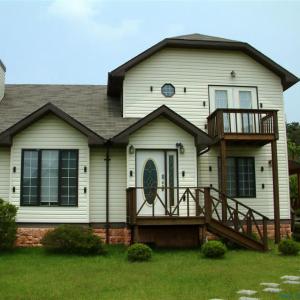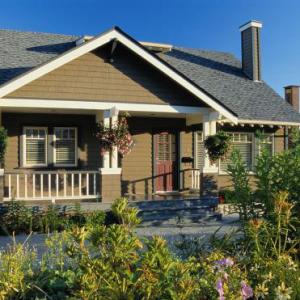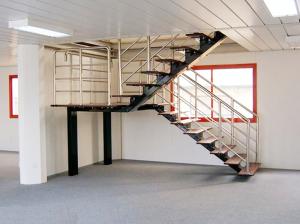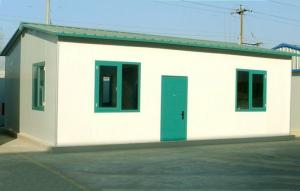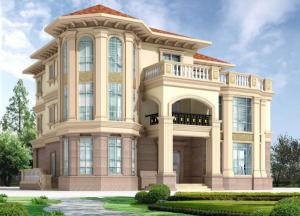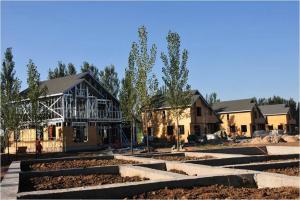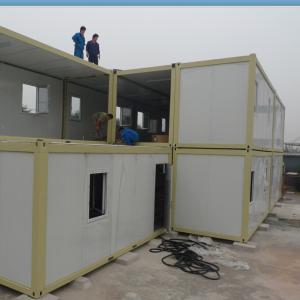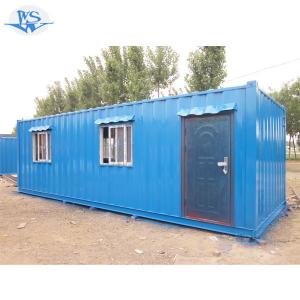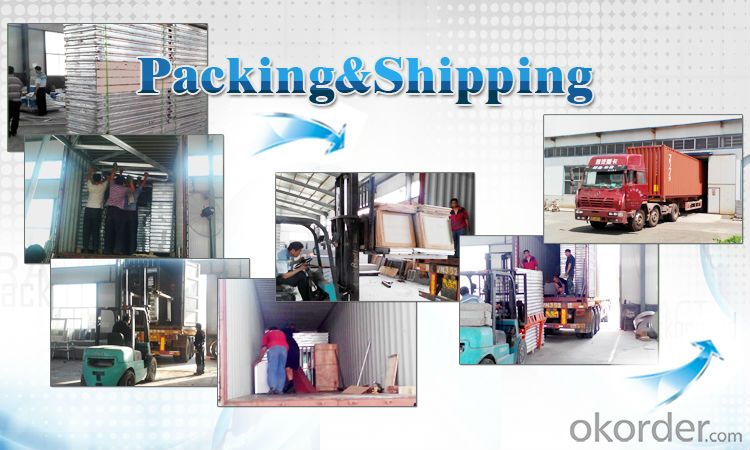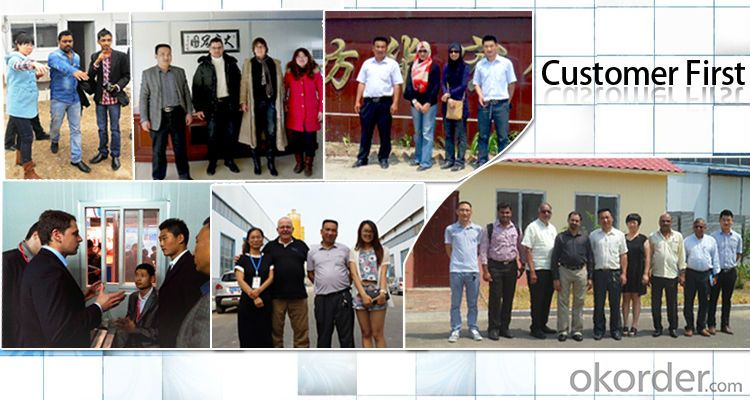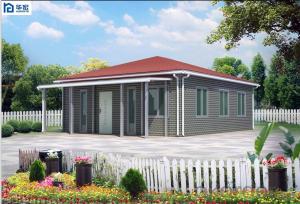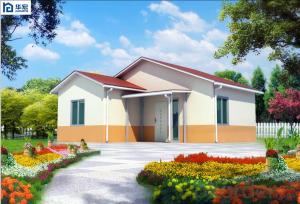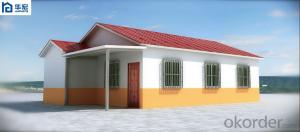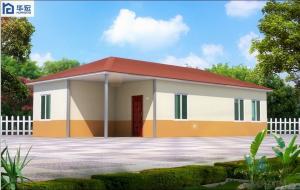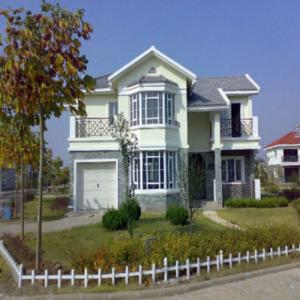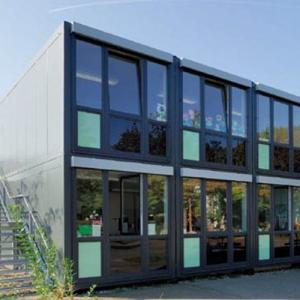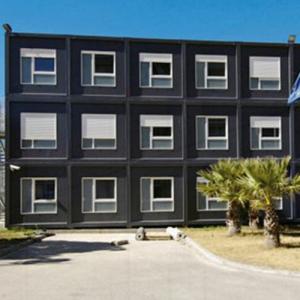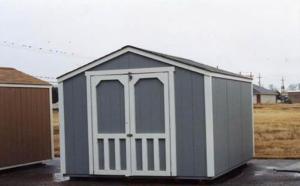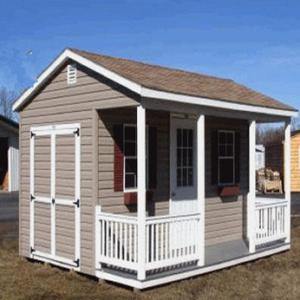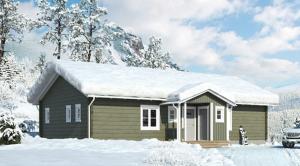Beautiful And Cheap Cement House
- Loading Port:
- China Main Port
- Payment Terms:
- TT OR LC
- Min Order Qty:
- -
- Supply Capability:
- -
OKorder Service Pledge
OKorder Financial Service
You Might Also Like
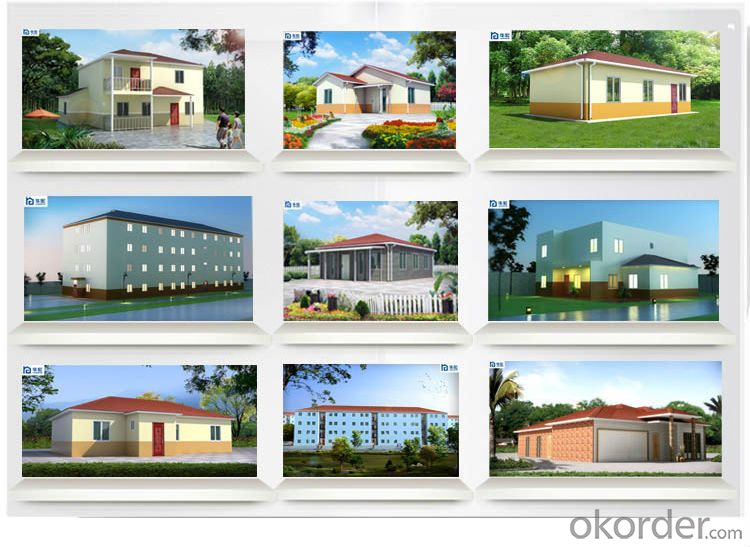
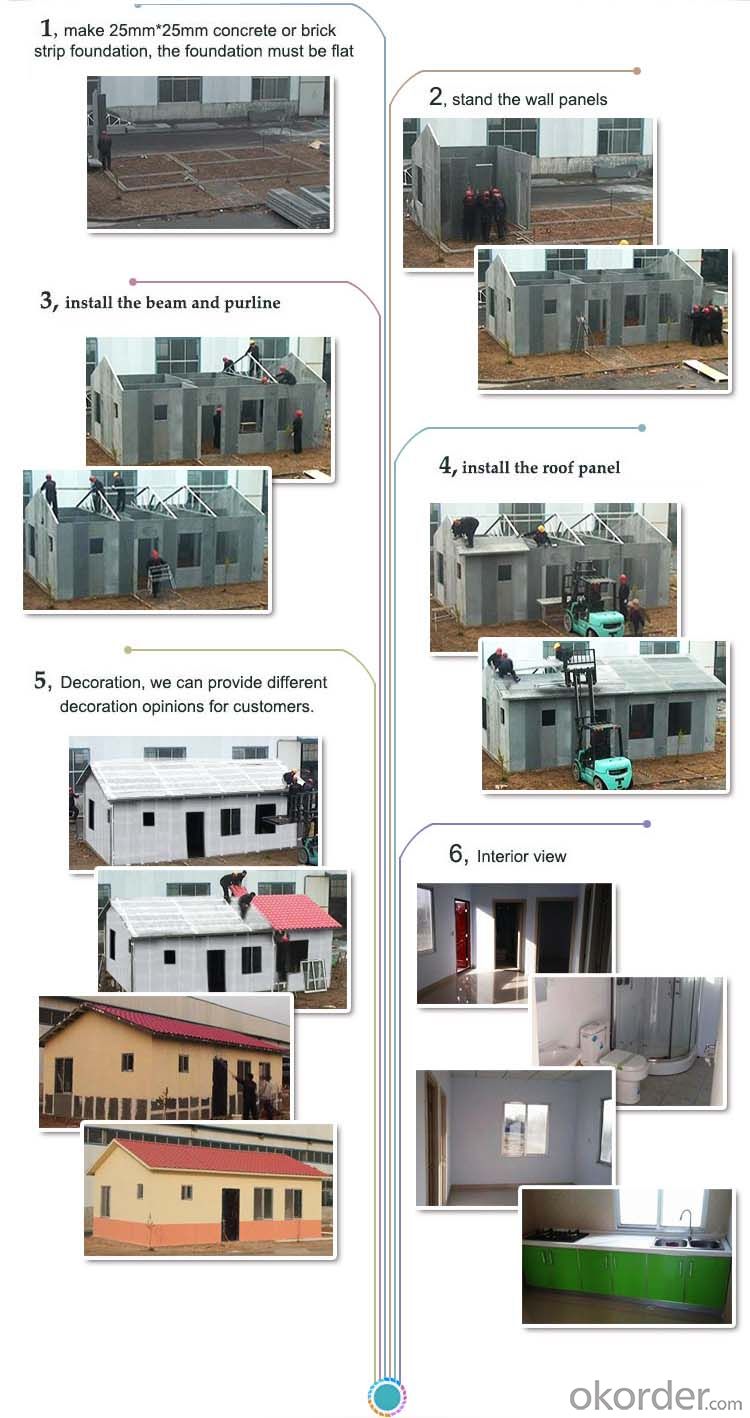
More questions:
1, What's your Payment term:
30% deposit by TT, 70% balance before loading container by TT; 100% LC at sight(total payment over 100,000USD);
2, How about Shipping:
We use 20 feet container and 40HQ container to ship the goods; Usually one 20 feet container can load about 50-60 square meters' house, 40HQ container can load about 120-140 square meters's house.
3, How to become your agent in our country:
First, you can make a report about your market, include the the rules and laws of prefab house, popular house models, target price, and potential sales quantity.
Second, you must place a trial order to act as the display.
Third, after finishing the sample house and getting the local people's feedback, we will give you the agent right in one area with limited time.
Fourth, Please note that we already have agent in Mumbai City India; Marshall Islands, Trinidad and Tobago.
4, Can you help me to purchase other things like furniture or appliance:
Because the customs law, our company can only export prefab house, so we just can purchase very little matched kitchen and bathroom facilities for you in consideration of customs clearance.
5, Can you send workers to help me build house.
Considering the labor cost, safety and visa issues, we suggest to send one or two engineers to guide and train your staffs. You must provide air tickets, hotel, and meal, and 100USD per day for engineer salary.
- Q: Are container houses suitable for agricultural or farming purposes?
- For agricultural or farming purposes, container houses are indeed a suitable option. These structures possess various advantages that make them attractive for such applications. Primarily, container houses are highly customizable and easily modified to meet specific farming requirements. They can serve as storage facilities, livestock shelters, or hydroponic growing spaces with ease. Moreover, container houses exhibit durability and weather resistance, which is crucial for enduring the diverse elements associated with farming. They are engineered to withstand extreme weather conditions, rendering them appropriate for use in rural areas where agricultural activities are frequently conducted. Furthermore, in contrast to traditional building methods, container houses are cost-effective. Construction and maintenance expenses are significantly lower, allowing farmers to allocate their resources more efficiently. This affordability establishes container houses as a practical choice for small-scale farmers or individuals with limited budgets. Another benefit of container houses is their mobility. They can effortlessly be transported to different locations, enabling farmers to adapt to changing farming needs or relocate to more suitable areas. This flexibility proves particularly advantageous for farmers engaged in seasonal or rotational farming practices. Additionally, container houses promote eco-friendliness as they repurpose old shipping containers, reducing waste and fostering sustainability. They can also be equipped with energy-efficient features, such as solar panels or rainwater harvesting systems, further lessening their environmental impact. However, it is important to acknowledge that using container houses for agricultural purposes may have limitations. The size of the containers might restrict the scale of farming operations, and additional insulation or ventilation may be necessary to maintain suitable conditions for specific crops or livestock. In conclusion, container houses can serve as a suitable choice for agricultural or farming purposes. Their customizable nature, durability, affordability, mobility, and eco-friendliness establish them as a practical option for farmers seeking cost-effective and flexible structures to support their farming activities.
- Q: Are container houses suitable for areas with limited access to public transportation?
- Yes, container houses are suitable for areas with limited access to public transportation. Container houses can be designed to be self-sufficient and equipped with their own amenities such as water, electricity, and heating systems. They can be built in remote locations and do not depend on public transportation for their functionality. Additionally, container houses are often modular and can be easily transported to different areas, making them adaptable to changing transportation needs.
- Q: Are container houses suitable for areas with strict HOA regulations?
- Areas with strict HOA regulations may find container houses to be a viable choice, depending on the specific requirements and restrictions imposed by the HOA. While container houses may not align with the traditional aesthetic of many HOA-regulated neighborhoods, they offer several advantages that make them a feasible option. To begin, container houses are often more cost-effective compared to traditional stick-built homes. This affordability factor can be beneficial for individuals seeking to construct a home in areas with high property prices or limited housing options. Consequently, container houses can be an attractive choice for certain homeowners. Moreover, container houses are renowned for their durability and sustainability. These structures are designed to withstand tough transportation conditions, making them resistant to severe weather and natural disasters. Additionally, repurposing shipping containers helps reduce waste and fosters an environmentally friendly approach to construction. Nevertheless, it is crucial to note that container houses may require modifications to comply with the HOA's specific regulations. Such modifications may involve altering the house's exterior appearance, landscaping, or overall layout. Homeowners should thoroughly review and comprehend the HOA guidelines to ensure adherence. Furthermore, it is advisable to engage in open communication with the HOA board and seek their approval before embarking on a container house project. Demonstrating the benefits, addressing concerns, and providing detailed plans can help persuade the HOA to consider permitting container houses within their regulations. In conclusion, container houses can be suitable for areas with strict HOA regulations, but it necessitates thoughtful consideration, adherence to guidelines, and open communication with the HOA. The affordability, durability, and sustainability aspects of container houses can be appealing to homeowners, but it is essential to ensure compliance with the HOA's specific regulations.
- Q: Are container houses resistant to wildfires?
- Container houses can be designed to be resistant to wildfires. The use of steel containers as the main structural component makes them inherently more fire-resistant than traditional wooden houses. Steel has a higher melting point than wood, which means it takes longer for it to catch fire. Additionally, the walls and roof of container houses can be reinforced with fire-resistant materials such as cementitious siding or metal cladding, further enhancing their resistance to wildfires. Furthermore, container houses can be built with fire-resistant insulation and double-pane windows, which help to prevent the spread of flames and limit the entry of sparks or embers. It is also possible to install fire-resistant doors and shutters to protect the openings of the house. However, it is important to note that no structure is entirely fireproof, and the resistance of a container house to wildfires also depends on its location, surrounding vegetation, and the intensity of the fire. In extremely severe wildfire conditions, no building type can guarantee complete safety. Therefore, proper planning, landscaping, and regular maintenance are crucial to reduce the risk of wildfires and mitigate their potential impact on container houses.
- Q: Can container houses be easily modified or renovated?
- Container houses have the advantage of being easily modified or renovated. The modular design of these houses provides excellent flexibility for modifications and renovations. The steel structure of shipping containers simplifies the process of removing walls, adding windows or doors, and even stacking containers to create multi-level structures. Moreover, the interior of container houses can be customized to personal preferences, making it convenient to install plumbing, electrical systems, insulation, and various finishes. The adaptability of container houses makes them a perfect choice for individuals in search of a sustainable and cost-effective housing solution that can be effortlessly modified or renovated to meet their evolving needs and preferences.
- Q: Are container houses suitable for elderly individuals?
- Yes, container houses can be suitable for elderly individuals. Container houses can be designed with accessibility features such as ramps, wider doorways, and grab bars to accommodate the mobility needs of elderly individuals. Additionally, container houses can be modified to include single-level layouts to avoid the need for stairs. With proper modifications and considerations, container houses can provide a comfortable and convenient living space for elderly individuals.
- Q: Are container houses suitable for daycare or childcare centers?
- Daycare or childcare centers can indeed utilize container houses as suitable options. These houses are renowned for their versatility and adaptability, making them feasible for various purposes, including childcare facilities. It is possible to easily customize and convert container houses into functional, secure, and inviting spaces for children. By incorporating proper insulation, ventilation, and soundproofing, container houses can provide a comfortable and safe environment for children to learn and play. Moreover, container houses can be designed to encompass all essential amenities required for daycare or childcare centers, such as playrooms, classrooms, restrooms, kitchens, and outdoor play areas. These houses can also be conveniently expanded or modified to cater to the evolving needs of the center as it grows. In terms of cost-effectiveness, container houses prove to be more economical compared to traditional buildings, making them an appealing choice for daycare or childcare centers with budget constraints. They are also environmentally friendly since they are constructed using recycled shipping containers, thus promoting sustainability and reducing the impact on the environment. However, it is crucial to ensure compliance with all necessary regulations and safety standards when utilizing container houses for childcare centers. These standards may consist of fire safety measures, adequate space per child, and accessibility for children with disabilities. Collaborating closely with architects and contractors experienced in designing container houses specifically for childcare facilities can guarantee adherence to all relevant regulations. To summarize, container houses present a suitable and pragmatic option for daycare or childcare centers. They offer flexibility, cost-effectiveness, and the ability to create a secure and nurturing environment for children. With meticulous planning and adherence to regulations, container houses can serve as an excellent solution for daycare and childcare facilities.
- Q: Are container houses suitable for student accommodation?
- Indeed, container houses can serve as a viable choice for student accommodation. They possess several merits that render them appealing to students. Firstly, container houses prove cost-effective in comparison to traditional housing alternatives, a crucial aspect for students who often possess limited budgets. They can be procured or rented at a reduced expense, thereby constituting a more economical alternative. Secondly, container houses boast high degrees of customization, allowing for their transformation into cozy living spaces. With suitable modifications, these houses can encompass all the essential amenities, including bedrooms, bathrooms, kitchens, and study areas. By optimizing space utilization, these structures can furnish a comfortable living environment for students. Furthermore, container houses present the advantage of being portable, facilitating easy relocation if necessary. This flexibility proves advantageous to students who may frequently need to move, be it due to university transfers, internships, or other reasons. By enabling transportation to different locations, container houses offer a convenient solution for student accommodation. Moreover, container houses demonstrate an eco-friendly nature, given that they are constructed from recycled shipping containers. Consequently, they represent a sustainable and environmentally conscious choice for student housing. As the emphasis on sustainability continues to grow, container houses align with the values of numerous students concerned about the environment. However, it is crucial to acknowledge potential drawbacks as well. Container houses may possess limited insulation, potentially necessitating additional heating or cooling measures. They might also present restricted space in comparison to traditional houses, which could pose a concern for students requiring more room. Additionally, the availability of land and requisite permits for container houses can vary depending on the location, potentially posing challenges for student accommodation. In conclusion, container houses offer a fitting option for student housing due to their affordability, customizability, portability, and eco-friendliness. While certain limitations should be considered, these houses present a practical and sustainable solution for students seeking affordable and flexible housing alternatives.
- Q: What is the height of the villa house?
- we usually do some villa indoor doors are often in the size of 2200 * 900 , 2300 * 900,2400 * 900 and some other ultra-wide and wide size.
- Q: Can container houses be designed with green roofs?
- Yes, container houses can be designed with green roofs. The strong structural integrity of shipping containers makes them suitable for supporting the weight of a green roof. Green roofs provide numerous environmental benefits such as improved insulation, stormwater management, and biodiversity promotion. They also enhance the aesthetics of the container house and contribute to energy efficiency. With proper design and installation, container houses can successfully incorporate green roofs.
Send your message to us
Beautiful And Cheap Cement House
- Loading Port:
- China Main Port
- Payment Terms:
- TT OR LC
- Min Order Qty:
- -
- Supply Capability:
- -
OKorder Service Pledge
OKorder Financial Service
Similar products
Hot products
Hot Searches
